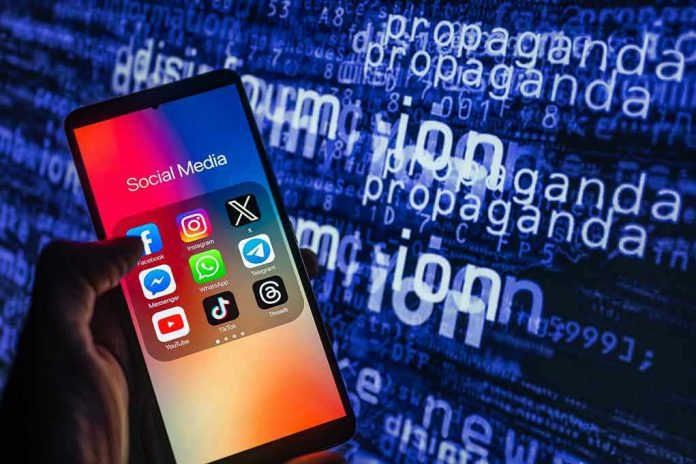
Social media platforms have handed scammers the keys to credibility by allowing anyone to purchase verification badges, transforming what was once a trusted symbol of authenticity into a weapon for fraud that threatens American families and businesses online.
Story Snapshot
- Paid verification systems replaced merit-based authentication, enabling scammers to buy legitimacy for just a few dollars
- Account takeovers and identity theft spiked 288% in 2022 as criminals exploited purchased checkmarks to appear trustworthy
- Major brands suffered financial losses and reputational damage from impersonation campaigns using verified fake accounts
- Cybersecurity experts warn that purchased badges make scams “virtually undetectable” to ordinary Americans
From Merit-Based Trust to Pay-for-Play Deception
Before 2022, social media platforms awarded verification badges based on strict authenticity criteria, helping users identify legitimate public figures, celebrities, and businesses. Twitter, Instagram, and Facebook maintained rigorous vetting processes to prevent impersonation and protect users from fraudulent accounts. This system served as a digital seal of approval that Americans could trust when engaging with brands and public personalities online.
The transformation began when platforms like Twitter introduced paid verification programs, allowing anyone to purchase a blue checkmark for a monthly fee. This fundamental shift from merit-based authentication to monetized credibility removed the barriers that previously prevented scammers from appearing legitimate. Platform executives claimed these changes would “defeat spam,” but evidence demonstrates the opposite effect has occurred.
Scammers Exploit Purchased Credibility for Financial Gain
Cybercriminals quickly recognized the opportunity to weaponize purchased verification badges for sophisticated fraud schemes. The Identity Theft Resource Center documented a staggering 288% increase in social media account takeovers during 2022, directly correlating with the introduction of paid verification systems. Scammers now routinely purchase checkmarks to impersonate celebrities, business leaders, and trusted brands in phishing campaigns targeting American consumers.
High-profile incidents illustrate the real-world consequences of this policy failure. A fake Eli Lilly account with a purchased verification badge posted misleading information about insulin pricing, causing significant market disruption and financial losses for investors. These attacks demonstrate how purchased credibility enables scammers to manipulate not just individual victims but entire markets and industries.
Economic Impact Threatens American Businesses and Families
The monetization of trust has created substantial financial risks for American businesses and consumers. Brands face increased impersonation threats that damage their reputations and drive away customers, while ordinary Americans struggle to distinguish legitimate accounts from sophisticated scams. Major advertisers have withdrawn spending from platforms where impersonation risks have increased, reducing revenue and forcing platforms to confront the unintended consequences of their policies.
Cybersecurity experts emphasize that purchased verification badges undermine fundamental online safety principles. When anyone can buy credibility, the entire concept of digital authentication loses meaning, leaving Americans vulnerable to identity theft, financial fraud, and personal data breaches. This erosion of trust signals extends beyond individual platforms, threatening confidence in digital commerce and online interactions that millions of Americans rely on daily.
Sources:
Fake Social Media Verification Badge Scam
Looking to Get Verified on Social Media? Watch Out for Scammers
Who Are Blue Check Scammers on X and What Is Their Aim?
Social Media Verification Systems Lose Power as Scammers Purchase Checkmarks to Appear Legitimate







